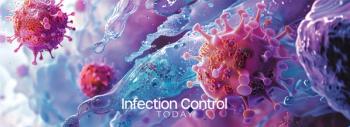
Researchers Report on the Early Development of Anti-HIV Neutralizing Antibodies
New findings are bringing scientists closer to an effective HIV vaccine. Researchers from Seattle Biomedical Research Institute (Seattle BioMed), Vanderbilt University and the Ragon Institute of MGH, MIT and Harvard report findings showing new evidence about broadly-reactive neutralizing antibodies, which block HIV infection. Details are published Jan. 13 in the open-access journal PLoS Pathogens.
According to author Leo Stamatatos, PhD, director of the Viral Vaccines Program at Seattle BioMed and a major stumbling block in the development of an effective vaccine against HIV is the inability to elicit, by immunization, broadly reactive neutralizing antibodies (NAbs). These antibodies bind to the surface of HIV and prevent it from attaching itself to a cell and infecting it. However, a fraction of people infected with HIV develop broadly neutralizing antibodies (bNAbs) capable of preventing cell-infection by diverse HIV isolates, which are the type of antibodies researchers wish to elicit by vaccination.
"We've found that the people who develop broadly-reactive neutralizing antibodies which are about 30 percent of those infected tend to have a healthier immune system that differs from others who don't develop those antibodies," Stamatatos explained, saying that these antibodies target only a few regions of HIV which is good from the standpoint of vaccine development. "It gives us less to target," he says.
In addition, the new findings show that these antibodies are generated much sooner than previously thought, in some cases as soon as a year after infection.
"These studies provide a strong rationale to begin teasing out the early immunological signals that allow some individuals, but not others, to mount broadly reactive neutralizing antibody responses," adds co-author Galit Alter, PhD.
"Now we know that these broadly-reactive neutralizing antibodies don't develop simply by chance and we can work to understand what makes this 30 percent of the HIV-infected population different," Stamatatos explains. By understanding that, we can hopefully use that information to design new immunogens and immunization protocols that can mimic the early events that lead to the development of such antibodies during natural infection."
Reference: Mikell I, Sather DN, Kalams SA, Altfeld M, Alter G, et al. (2011) Characteristics of the Earliest Cross-Neutralizing Antibody Response to HIV-1. PLoS Pathog 7(1): e1001251. doi:10.1371/journal.ppat.1001251
Newsletter
Stay prepared and protected with Infection Control Today's newsletter, delivering essential updates, best practices, and expert insights for infection preventionists.



